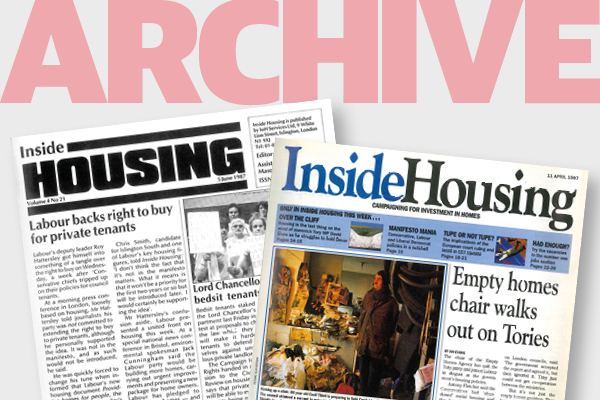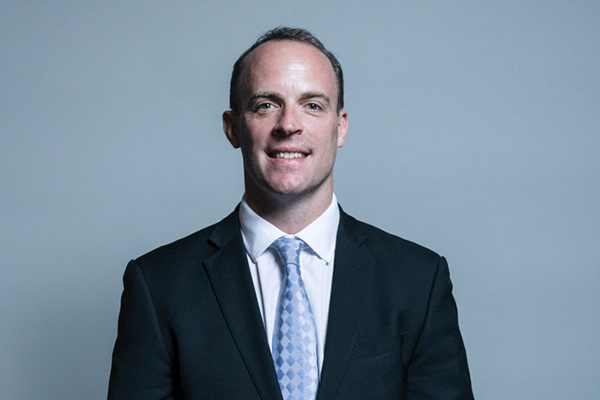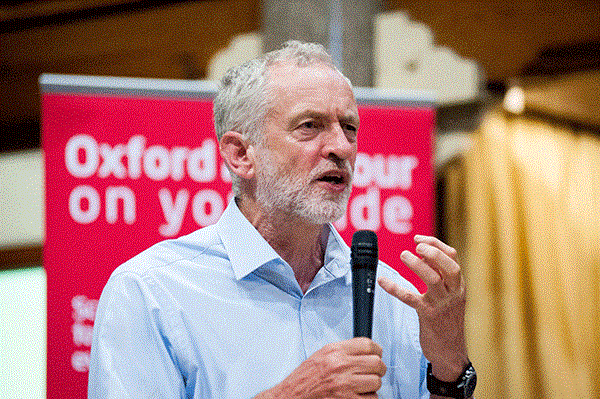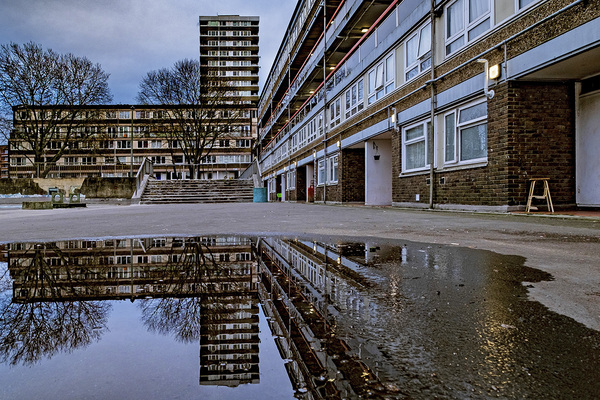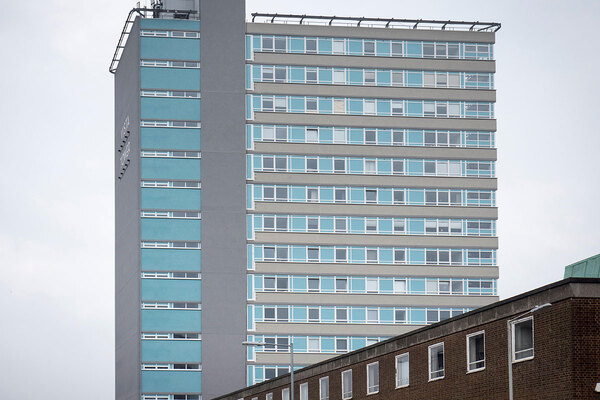You are viewing 1 of your 1 free articles
Labour proposes scrapping affordable rent in social housing review
Labour has proposed scrapping the affordable rent tenure in its social housing review, published today.
The paper suggests replacing the rent product – which was introduced by the coalition government and can be up to 80% of market rates – with a new income-linked definition of affordable housing. Before the last general election, Labour pledged to fund ‘Living Rent’ homes capped at a third of local incomes.
It also now calls for a new “Decent Homes 2” target for social landlords to improve fire safety in the wake of the Grenfell Tower disaster.
In addition, the paper proposes making housing associations subject to the Freedom of Information Act and requiring all social landlords to publish fire safety reports regularly.
And it says Labour would prohibit for-profit housing associations.
Jeremy Corbyn and shadow housing secretary John Healey will unveil the paper, titled Housing for the Many, at the Local Government Association headquarters in London on Thursday morning.
Mr Corbyn launched the review during his speech to the Labour party conference last September, a week after the government announced a Social Housing Green Paper.
“We need to restore the principle that a decent home is a right owed to all, not a privilege for the few,” he will say at the launch.
“And the only way to deliver on that right for everyone, regardless of income, is through social housing.”
The review makes a series of proposals to increase housebuilding and make homes more affordable.
It sets a target of a million new affordable homes over the next 10 years, mostly at social rent.
That effectively extends the party’s 2017 general election commitment to build 100,000 affordable homes a year by the end of the next parliament, in the hope of clearing England’s current housing waiting list of around 1.16 million households.
To achieve the goal, Labour calls for a new “duty to deliver affordable homes” to be imposed on councils, as well as a new needs assessment and an affordable new homes bonus.
Related Files
The party also promises to establish a new English Sovereign Land Trust to help councils acquire land more cheaply.
It would also form a new national tenants’ organisation and commissioner.
David Orr, chief executive of the National Housing Federation, said the paper is “a positive statement of ambition” which includes “many policies to welcome”.
“This paper should be the catalyst for further important conversations between the sector and the Labour Party and we look forward to working with them on this,” he said.
Terrie Alafat, chief executive of the Chartered Institute of Housing, said: “In recent years the definition of affordable housing has been stretched to breaking point for many people – the time is right for a national debate on what genuinely affordable housing should look like in all parts of the country.”
A full copy of the report is attached.
At a glance: Labour’s social housing proposals
- Scrap the affordable rent product and introduce new income-linked rents
- Introduce a new “Decent Homes 2” target for social landlords to improve fire safety post-Grenfell
- Make housing associations subject to the Freedom of Information Act
- Prohibit for-profit housing associations
- Set a new target of one million new affordable homes over 10 years, mostly at social rent
- Impose a new duty to deliver affordable homes on councils, introducing a new needs assessment and an affordable new homes bonus
- Establish a new English Sovereign Land Trust to help councils acquire land more cheaply.
- Form a new national tenants’ organisation and commissioner
- A “longer-term aim” for half of all new homes to be “genuinely affordable”
- Give housing associations access to Public Works Loan Board finance
- Consider returning in full the Treasury’s previous year’s share of Right to Buy receipts
- Introduce a planning “presumption” that all developments, including rural and smaller sites, will include affordable housing
- Help councils with no stock to start a Housing Revenue Account
- Fast-track Karen Buck’s Homes (Fitness for Habitation) bill
- Consult on requiring landlords to publish an annual “outsourcing statement”
- Consult on housing associations to be required to have tenants on their boards
More episodes of The Housing Podcast
Review of the year 2019
As the year draws to an end, The Housing Podcast team wraps up the last 12 months, battles it out in a housing quiz, and looks ahead to 2020.
What did the Grenfell Inquiry phase one report say?
This week, Sir Martin Moore-Bick published his Phase One report from the public inquiry into the Grenfell Tower fire in June 2017. The 838-page report focuses on the events of that dreadful night: how the blaze started, how it spread so ferociously through the building, and how organisations including the emergency services responded.
Sir Martin has also produced recommendations aimed at preventing similar disasters from happening again. Our team has spent the last few days picking through the report, and in this episode of The Housing Podcast, we discuss the key points.
As Boris Johnson takes over at Number 10 Downing Street and appoints his new cabinet, the Housing Podcast team present their first ever 'emergency' episode, looking at whether he is set to shift the housing policy dial back towards home ownership.
The Homes Fit for Human Habitation Act is on the statute book. But what is it for? What does it do? And will it work?
Karen Buck MP, who guided the bill through parliament, along with housing lawyers Giles Peaker and Justin Bates – who wrote it – sit down with The Housing Podcast to answer all this and more.
Theresa May scraps the cap: what does it mean?
To the delight of councils across the country, Theresa May announced this week that she will scrap the Housing Revenue Account borrowing cap.
With the help of Eamon McGoldrick of the National Federation of ALMOs, in this week’s episode of The Housing Podcast we discuss the history of this contentious area of housing policy and look at what happens now.
The true cost of homelessness
Inside Housing has conducted in-depth research into the amount councils are spending on temporary accommodation for homeless people, with shocking results.
In this episode of The Housing Podcast, we take a look at the financial aspect of homelessness and discuss the figures with Matt Downie, director of policy and external affairs at Crisis.
Rating the Social Housing Green Paper
The Housing Podcast team is joined by David Pipe from the Chartered Institute of Housing and housing columnist Jules Birch to rank the proposals in the Social Housing Green Paper out of 10. Edited by Luke Barratt.
Listen or download here:
The supported housing saga
The government’s announcement this week that it will drop plans to change the way supported housing is funded brings to a close a nearly three-year cycle of lobbying against these proposals.
This week, The Housing Podcast looks back at this story, which began with a throwaway line in George Osborne’s Autumn Statement in 2015.
A brief history of council housing
In this week’s episode of The Housing Podcast we speak to John Boughton, social historian and author of Municipal Dreams: The Rise and Fall of Council Housing, about the five phases of local authority housing – starting in the East End of London in 1900.
Who has been the best housing minister since 2010?
The Housing Podcast team gets together to rank all the housing ministers of the modern Tory era, from Grant Shapps to Dominic Raab. There are a lot of them. Edited by Luke Barratt.
Listen or download here:
The Hackitt Review
This week, Dame Judith Hackitt released the findings of her building regulations review, commissioned by the government in the wake of the Grenfell Tower fire last June.
Featuring an interview with Dame Judith, the team takes a look at what was in the report – and why some people were less than impressed.


